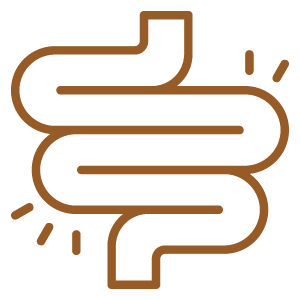Bashir, S., Gilani, A. H., Siddiqui, A. A., Pervez, S., Khan, S. R., Sarfaraz, N. J., & Shah, A. J. (2010). Berberis vulgaris root bark extract prevents hyperoxaluria induced urolithiasis in rats. Phytotherapy Research, 24(8), 1250-1255. https://doi.org/10.1002/ptr.3196
Chan, E. (1993). Displacement of bilirubin from albumin by berberine. Biology of the Neonate, 63(4), 201-208. https://doi.org/10.1159/000243932
Dong, H., Wang, N., Zhao, L., & Lu, F. (2012). Berberine in the treatment of type 2 diabetes mellitus: A systemic review and meta-analysis. Evid-Based Compl Alt Med, 2012, 591654. https://doi.org/10.1155/2012/591654
Emamat, H., Zahedmehr, A., Asadian, S., Tangestani, H., & Nasrollahzadeh, J. (2020). Effect of barberry (Berberis vulgaris) consumption on blood pressure, plasma lipids, and inflammation in patients with hypertension and other cardiovascular risk factors: Study protocol for a randomized clinical trial. BMC Complementary Medicine and Therapies, 20(1), 986. https://doi.org/10.1186/s12906-020-03158-2
Feng, X., Sureda, A., Jafari, S., et al. (2019). Berberine in cardiovascular and metabolic diseases: from mechanisms to therapeutics. Theranostics, 9(7). https://doi.org/10.7150/thno.30787
Guo, Y., Chen, Y., Tan, Z. R., Klaassen, C. D., & Zhou, H. H. (2012). Repeated administration of berberine inhibits cytochromes P450 in humans. European Journal of Clinical Pharmacology, 68(2), 213-217. https://doi.org/10.1007/s00228-011-1108-2
Han, C. Y., Sun, T. T., Xv, G. P., Wang, S. S., Gu, J. G., & Liu, C. Y. (2020). The Berberis vulgaris L. extract berberine exerts its antioxidant effects to ameliorate cholesterol overloading-induced cell apoptosis in the primary mice hepatocytes: An in vitro study. In Vitro Cellular & Developmental Biology - Animal, 56(7), 614-623. https://doi.org/10.1007/s11626-020-00473-w
Imanshahidi, M., & Hosseinzadeh, H. (2008). Pharmacological and therapeutic effects of Berberis vulgaris and its active constituent, berberine. Phytotherapy Research, 22(8), 999-1012. https://doi.org/10.1002/ptr.2399
Johnson, M., & Rafikhah, N. (2014). Berberis vulgaris juice and acne vulgaris: A placebo-controlled study. Asian Journal of Clinical Nutrition, 6(2), 47-52. http://doi.org/10.3923/ajcn.2014.47.52
Kamrani Rad, S. Z., Rameshrad, M., & Hosseinzadeh, H. (2017). Toxicology effects of Berberis vulgaris (barberry) and its active constituent, berberine: A review. Iranian Journal of Basic Medical Sciences, 20(5), 516-529. https://doi.org/10.22038/IJBMS.2017.8676
Mills, S., & Bone, K. (2013). Principles and practice of phytotherapy (2nd ed.). Elsevier.
Moazezi, Z., & Qujeq, D. (2014). Berberis fruit extract and biochemical parameters in patients with type II diabetes. Jundishapur Journal of Natural Pharmaceutical Products, 9(2), e13490. https://doi.org/10.17795/jjnpp-13490
Shidfar, F., Ebrahimi, S. S., Hosseini, S., Heydari, I., Shidfar, S., & Hajhassani, G. (2012). The effects of Berberis vulgaris fruit extract on serum lipoproteins, apoB, apoA-I, homocysteine, glycemic control and total antioxidant capacity in type 2 diabetic patients. Iranian Journal of Pharmaceutical Research, 11(2), 643. http://www.ncbi.nlm.nih.gov/pmc/articles/pmc3832145/
Stermitz, F. R., Lorenz, P., Tawara, J. N., Zenewicz, L. A., & Lewis, K. (2000). Synergy in a medicinal plant: Antimicrobial action of berberine potentiated by 5′-methoxyhydnocarpin, a multidrug pump inhibitor. Proceedings of the National Academy of Sciences, 97(4), 1433-1437. http://doi.org/10.1073/pnas.030540597












